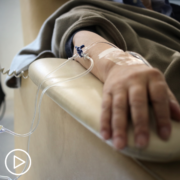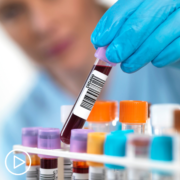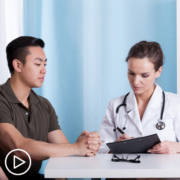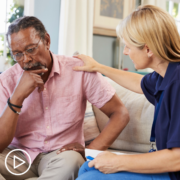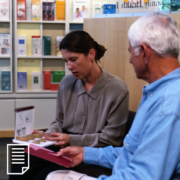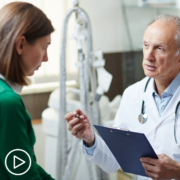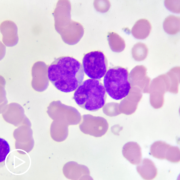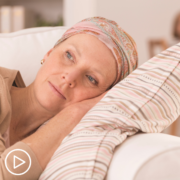Prostate Cancer Testing: What Tests Should You Advocate For? from Patient Empowerment Network on Vimeo.
Genetic testing results can influence a prostate cancer patient’s treatment options and provide a more in-depth understanding into their disease. Dr. Sumit Subudhi reviews specific tests that prostate cancer patients should advocate for.
Dr. Sumit Subudhi is a Medical Oncologist at The University of Texas MD Anderson Cancer Center.
See More From INSIST! Prostate Cancer
Related Resources
Transcript:
Katherine:
What is the role of genetic testing in prostate cancer?
Dr. Subudhi:
That’s a great question, because this is something that wasn’t really available when I was training and understanding prostate cancer. But over the last few years, this has actually hit the mainstream, and it’s very important. And I see it having three roles. The first role is whether or not you can receive a certain type of targeted therapy or systemic therapy known as PARP inhibitors. So, if your genetic test is positive for certain markers – that I think we’ll cover later – then it can help give you more treatment options. The second is that generate testing can give you also risk of other cancers besides prostate cancer. For example, if you have the BRCA mutation, you’re 15% to 20% more likely to get breast cancer in men.
The third is that because the genetic testing is looking for inheritable mutations in your genes, that means you can pass it along to your kids. And this could have a tremendous impact on the screening strategies your children want to use in the future.
Katherine:
Would you mind going into that a little bit?
Dr. Subudhi:
Yeah.
Katherine:
For instance, my ex-husband had early prostate cancer. My 22-year-old son is worried now about also getting prostate cancer. His grandfather had prostate cancer.
Dr. Subudhi:
Yeah, great question. So, it’s not just about prostate cancer. So, prostate cancer, genetically, is linked to other cancers, as well.
So, in your case, you’re turning by your son. But if you have daughters or any female members in the family, consideration needs to be given to breast and ovarian cancer. And for both men and women, we also have to think about melanoma and pancreatic cancer. So, it’s not just prostate cancer that we’re thinking about when you have these genetic risks. And that’s very important, because each of these different cancers can have different screening modalities.
Katherine:
Oh. Well, how is the testing administered then?
Dr. Subudhi:
The testing is actually a blood test, so very simple.
Katherine:
Have there been any major advances in testing?
Dr. Subudhi:
Yeah, so when we’re talking about the inheritable testing, that’s just a simple blood test. And the reason why it can be done simply through the blood is because every cell in your body has it. So, when they collect the blood, they can just take any cell from there and do genetic analysis. And if that gene is mutated or missing, it will be captured.
Now, there’s another type of testing where they test your tumor tissue itself – so, your cancer tissue – whether you got it by biopsy or surgically removed. And so, that’s a different type of testing. That’s looking for what we call somatic mutations. These are not inherited mutations. These are mutations that are specific for your prostate cancer. Again, in contrast, the inheritable mutations are in every cell in your body – not just your prostate cancer cells, but every cell in your body. And the somatic, it’s just in your prostate tissue itself.
And so, sometimes with prostate cancer, it’s difficult to get the tissue. And what’s happened more recently – and to answer your question – is that the advances have been in what we call liquid biopsies, where they are able to use your blood and get the DNA from the tumors and actually genetically test the cancers that way. And so, that’s where the future is going.
Katherine:
Oh, that’s amazing. Are there specific tests that patients should ask their doctor for following the diagnosis?
Dr. Subudhi:
Yeah. So, if inpatients with high risk or metastatic prostate cancer, they should definitely be considering tests to see if they have mutations in what we call the DNA damage repair pathway or homologous recombination DNA pathway. And I know they’re fancy terms. What these genes are, they’re genes that help the body repair their DNA, and DNA is very important. And so, when there’s defects in the DNA repair pathway, then mutations occur. And these mutations can actually help the cancer grow.
Now what’s happening is that what they’re looking for in these genetic tests – whether it’s the inheritable test or the somatic mutation test that’s looking just within the tumor itself – they’re looking to see if there’s any DNA damage machinery that’s defective. And if it is, then you’re more likely to benefit from PARP inhibitors, which are oral drugs that specifically target the DNA repair pathway.





